I No Longer Sponsor a Child
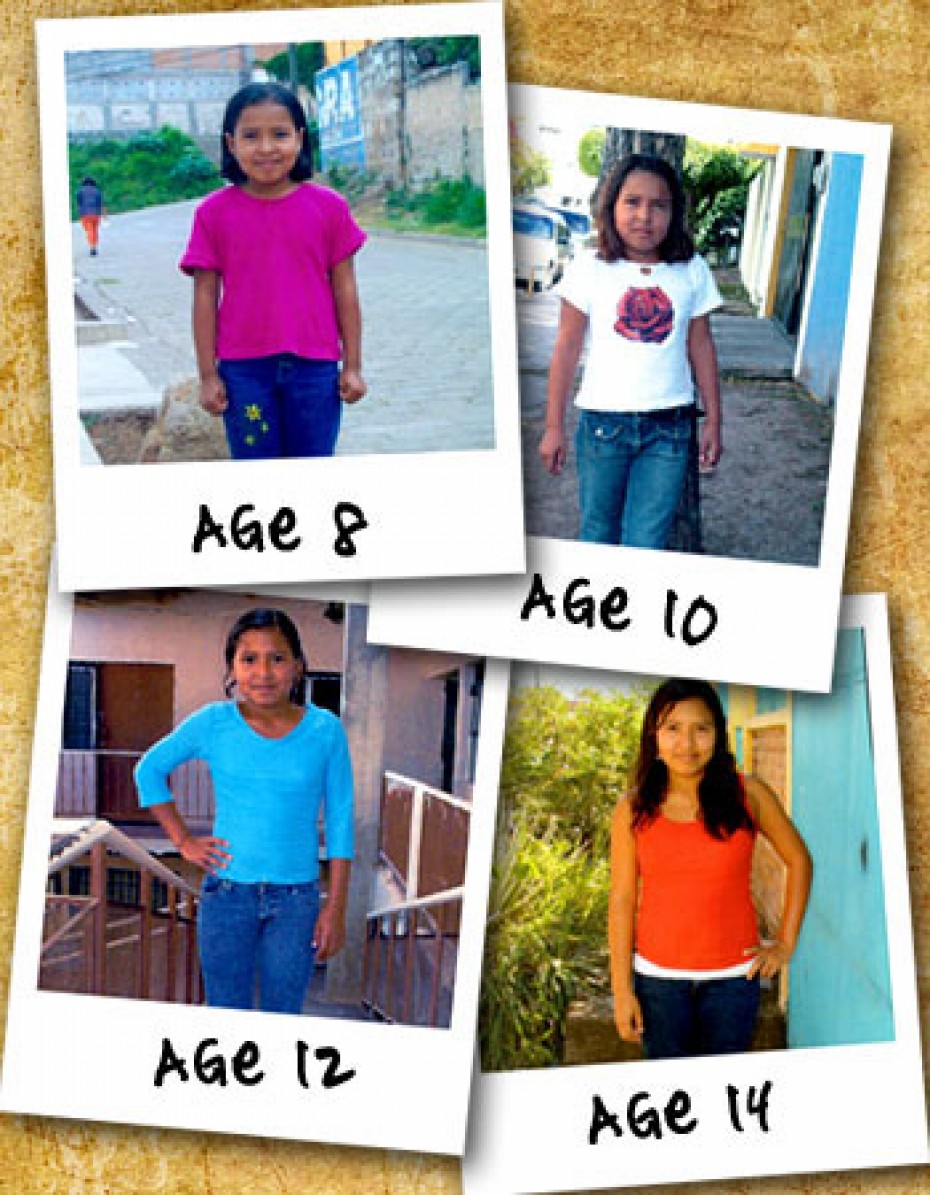
You know the scene in any coming-of-age movie when a teenage girl is about to go to her first dance and she appears at the top of the stairs and her parent (usually a widowed father) stands there with tears in his eyes and a huge lump in his throat, totally entranced by his daughter’s newly uncovered beauty? That’s how I feel.
Continue Reading ›Why We Should Care About Honduras
![]() This is the byline on a recent op-ed piece in The Miami Herald:
This is the byline on a recent op-ed piece in The Miami Herald:
“Edouard Lassegue is the Vice President of the Latin America and Caribbean Region at Compassion International, the world’s largest Christian child development organization.”
And this is why Edouard says we should care about what is happening in Honduras:
Continue Reading ›Poverty in Central American countries is the foundation for all other social justice issues. Honduras maintains an unemployment rate of 28 percent, and two-thirds of its citizens live below the poverty line. The instability the country is currently experiencing is not rooted in politics — it is social. It is hopelessness and destitution.
When Central American economies fail to produce opportunities and jobs — and if governments cannot protect citizens — populist demagogues promising reform but continuing the status quo are elected.
Where poverty flourishes, crime and corruption flourish. This is what we are currently witnessing in Honduras.
10 Questions With Jeimy Reyes
1. How long have you been in your current position with Compassion Honduras, and what is your job?
Seventeen months. I am an auditor.
2. What are the main responsibilities of being an auditor?
Identifying the strengths and weaknesses of the partner church as well as the challenges it faces.
We look for strengths so that these can be used as a support for other churches. We look for weaknesses and challenges so we can suggest solutions and give the appropriate follow-up in order to correct and solve problems in the churches.
In other words, we hope to provide necessary and timely support to the church.
3. What does an average day look like for you? (more…)
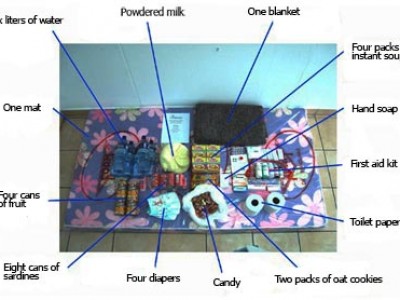
Disaster Relief Kit: What’s Inside?
After a disaster occurs in one of our countries, we often raise money to help those affected. We do this to help provide things such as food and water, shelter, bedding, trauma counseling or medical treatment, among other needs. Many times we also send disaster relief kits.
A Shining Future for Rosa
It is 6 a.m. in Honduras and Rosa’s mother has already left to work at a local restaurant. Rosa wakes up and starts her chores around the house.
Rosa’s daily workday begins with making the first round of tortillas to sell, followed by tending to her personal hygiene, the house cleaning, preparing the meals, doing her school work, and finally, getting ready for university.
Adding to her workload is caring for her 2-year-old nephew, Yerson, who is a very active boy. Rosa is in charge of him while her older brother, Yerson’s father, goes to work during the morning. She has to feed Yerson, bath him and dress him, among other responsibilities.
It is a tight daily schedule, Monday through Friday.
As the time passes, Rosa starts to prepare lunch and gets ready to go to the university. Right before leaving for the education center, she goes over her school work and organizes her assignments.
Multiple activities have not impeded Rosa’s determination to do well in her classes. She is committed to honor the generous support of her sponsor, as well as being a voice for other young people in her center who dream of being part of the Leadership Development Program* (LDP).
Finally, Yerson’s father returns home for lunch, and Rosa is free to go. Rosa attends the university five hours daily, Monday through Friday. Her university is the largest education center in the country with approximately 50,000 students.
This bright young girl lives with her mother, who works from 6 a.m. to 6 p.m. to support her small family. This provides the necessary income to cover their monthly expenses.
The absence of Rosa’s father has been difficult for her and still brings tears. Like any child, she dreamed of having a normal and happy family but, unfortunately, the separation of her parents has left much sadness in Rosa’s heart. Her father has never been around and was never interested in being part of his daughter’s life.
For more than a decade, Rosa has been registered in a child development center in the neighborhood of Flor del Campo in the capital city. It’s a big neighborhood that has been affected by the presence of gangs in some areas.
Walking very late at night it is not safe for residents; however, local authorities have taken control of the zone and the situation has improved.
Ever since Rosa was a child, the child development center represented a strong figure in her life. There she made her first steps as a newborn Christian girl. Rosa opened her heart to Jesus, and received peace and comfort which helped her feel secure and loved. (more…)
Sewing Mamas Work for a Better Future
For three months the women met, sitting at their sewing machines, not only learning a skill to help them support their families, but also gaining new hope and faith in God.
This exceptional group of women at Centro de Desarrollo Gracia y Poder student center in Honduras benefited through a workshop carried out through our Complementary Interventions programs.
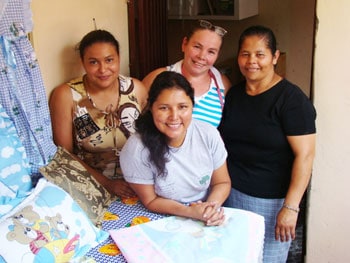
The seed fund was for $3,000 to teach these women, who didn’t know anything about sewing, a skill that could help them generate an income. The training lasted three months, and the participants learned how to create bed comforters and bed sets, curtains and tablecloths.
This activity was a life-changing experience for Gladis A., who didn’t just learn a new skill, but also opened her heart to Jesus through this workshop. (more…)
The Story of Pablo Moises
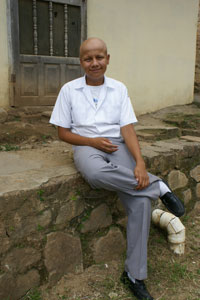 Pablo is a 13-year-old boy who lives in the city of Danli, located at the east side of the capital city, Tegucigalpa. His life has been marked by a rare illness that has caused him the loss of his hair and eyebrows since he was five years old.
Pablo is a 13-year-old boy who lives in the city of Danli, located at the east side of the capital city, Tegucigalpa. His life has been marked by a rare illness that has caused him the loss of his hair and eyebrows since he was five years old.
Because of this Pablo faced depression and nervous breakdowns while growing up. His mother, Petronila, was his support during this time of adjustment. Perhaps the most difficult time for him was school time; the idea of attending school without hair was a hard situation for Pablo. (more…)
Throw-Aways
I’ve been putting off writing this post. There are some things that are just easier not to think about.
They’re called “throw-aways,” people whom the world has no use for. (more…)
Rosa: An Amazing Woman
I met an amazing young woman this week while leading a trip to see Compassion’s work in Honduras. The young woman’s name is Rosa, and she is part of Compassion’s Leadership Development Program.*
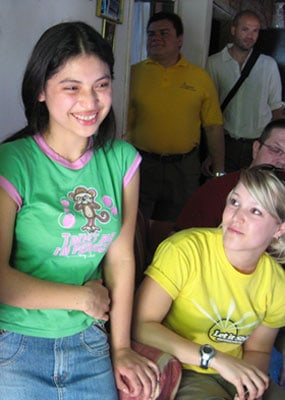 This university-based program, known as LDP, works with high achieving and high potential students from Compassion child development centers. The LDP program in Honduras is in its first year, and Rosa is one of 19 students in the inaugural class. It is inspiring to hear the LDP stories throughout the world, and I was honored to be in attendance at Ethiopia’s first LDP graduation a few months ago.
This university-based program, known as LDP, works with high achieving and high potential students from Compassion child development centers. The LDP program in Honduras is in its first year, and Rosa is one of 19 students in the inaugural class. It is inspiring to hear the LDP stories throughout the world, and I was honored to be in attendance at Ethiopia’s first LDP graduation a few months ago.
Compassion’s President, Wess Stafford, stood in front of the 24 Ethiopian graduates and congratulated them on completing their college degrees and then challenged them to be servant leaders in their communities and nation. He closed his talk to them by saying, “You may have been born into poverty, but poverty was not born into you.”
Rosa is a testimony to Wess’ statement. There were many times in her difficult life where she could have given up, and most of us would not have blamed her. However, if you spend just a few minutes with this remarkable 17-year-old girl, you will realize that giving up was not an option. She shared with us her daily schedule, and it is a great snapshot of the will and determination of Compassion’s LDP students.
6 a.m. – Wakes up each morning to clean the house and make sure all laundry is done for her mother and brother. Rosa’s mother raised all five of her children alone and works at a local restaurant cooking chicken.
8 a.m. – Prepares breakfast for her family.
9:30 a.m. – Begins baking tortillas to sell for the business she operates out of her home. Each day Rosa makes tortillas and people come from around the neighborhood to purchase them to eat for lunch. The money she earns from her business is used to help buy food for her family, and it also pays for her bus fare to and from the university.
12 p.m. – Finishes selling the tortillas and starts lunch for her 14-year-old brother. After he has eaten, she makes sure he gets off to school.
12:30 p.m. – Cleans up, eats her own lunch, and studies for her afternoon classes.
1:30 p.m. – Takes the city bus to the University of Tegulcigalpa, where she is a first-year student studying Business Administration.
7:30 p.m. – Returns to her home and spends the rest of the evening studying and spending time with her mother.
Rosa was asked what she would like to do once she graduates from university. “I eventually want to own and operate a business in my community but first I think I want to get my Masters degree,” she says.
The question, “What does success look like for Compassion International?” has become an easy one to answer because of students like Rosa.
*This content honors our historical Leadership Development Program. To learn more about our current youth development opportunities, click here. Brian Seay is an artist relations manager for Compassion, working with musicians and bands who advocate for Compassion and children in poverty. He was one of the bloggers on the Uganda blog trip.

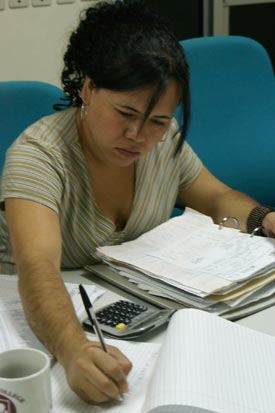 Identifying the strengths and weaknesses of the partner church as well as the challenges it faces.
Identifying the strengths and weaknesses of the partner church as well as the challenges it faces. 
